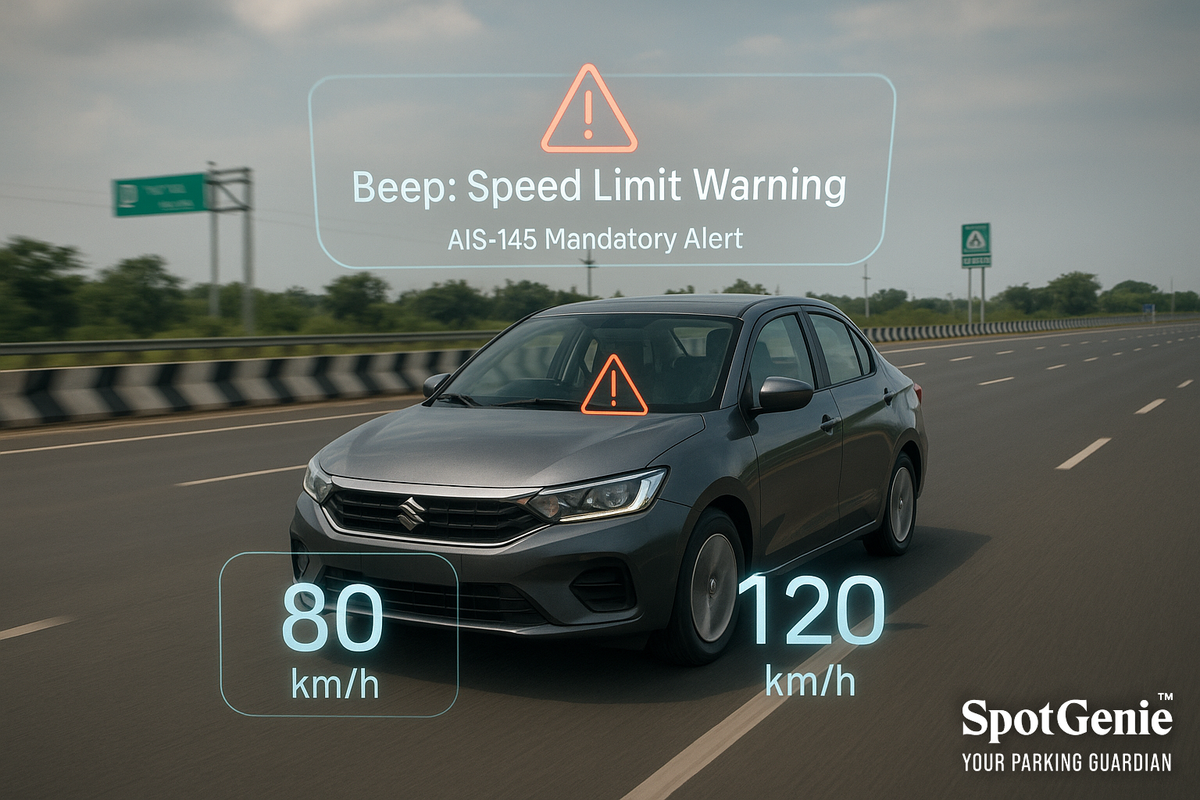Why Do Indian Cars Have a Speed Warning Beep at 80 and 120 km/h?
Ever wondered why your car suddenly beeps at 80 or 120 km/h in India? It’s not a bug—it’s a government-mandated safety feature. Learn the logic behind it in this SpotGenie Fact.

🚨 That Beep Isn’t a Bug. It’s the Law.
Driving on a highway and suddenly…
BEEP.
Then again at 120 km/h?
BEEEEP.
It’s not your car acting up — it’s a mandatory safety alert system as per the Indian government’s AIS-145 safety norms.
📜 What Is AIS-145?
In 2019, India’s Ministry of Road Transport & Highways (MoRTH) made it mandatory for all new vehicles to include:
- Speed Alert System
- Reverse Parking Sensor
- Seat Belt Reminders
- Manual override for central locking
This was introduced under the AIS-145 safety standard to reduce road fatalities.
🔊 Here’s How the Speed Alert Works:
- At 80 km/h → a single short beep sounds once and repeats occasionally.
- At 120 km/h → a continuous beep is triggered until the speed drops below that limit.
🧠 The goal? Encourage drivers to maintain safe, legal speeds, especially on highways and expressways.
🧩 Why Is This Needed?
India reports one of the highest numbers of road fatalities in the world. Over-speeding is a leading cause.
These alerts aim to build speed awareness and curb reckless driving, especially in smaller cars that may not feel dangerously fast.
🚘 Can You Disable It?
No. The feature is non-configurable and tamper-proof as per AIS-145. Disabling it can void your warranty or result in legal non-compliance.
🧠 Did You Know?
This alert is not based on GPS — it’s built into the ECU (Electronic Control Unit) of the car, and it works regardless of location.
Follow us on:
🅾 Instagram |
ⓕ Facebook |
𝕏 X |
▶️ YouTube |
🟢 WhatsApp



